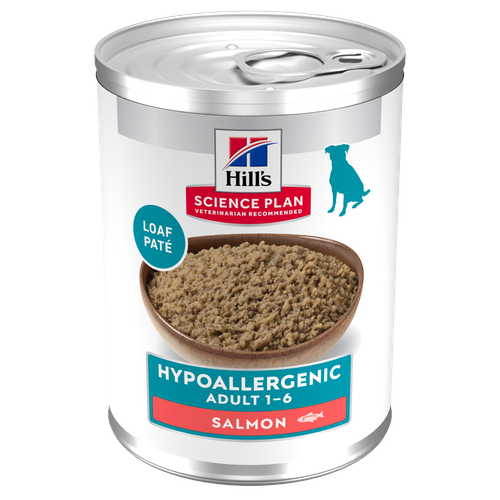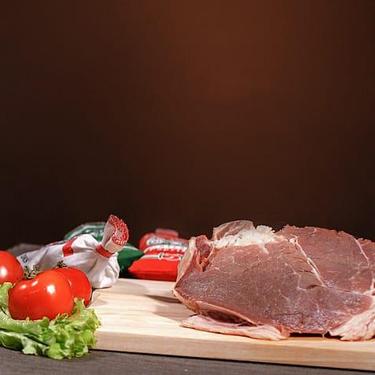
-
Find the right food for your petTake this quiz to see which food may be the best for your furry friend.Find the right food for your petTake this quiz to see which food may be the best for your furry friend.Featured products
 Adult Wet Dog Food with Beef
Adult Wet Dog Food with BeefHill's Science Plan Adult Multipack Wet Dog Food with Chicken, Beef & Turkey are complete premium pet foods for adult dogs from 1 year. Your dog will love these deliciously smooth and savoury minced loaves, formulated for balanced nutrition and overall health.
Shop Now Mature Adult Dog Food
Mature Adult Dog FoodHill's Science Plan Mature Adult Multipack Wet Dog Food with Chicken & Beef are complete premium pet foods for mature adult dogs from 7 years. Your dog will love these deliciously smooth and savoury minced loaves, formulated to deliver the appropriate amount of energy to support the needs of adult dogs.
Shop Now Puppy Food
Puppy FoodHill's Science Plan Puppy Multipack Wet Dog Food with Chicken & Beef are complete premium pet foods for growing puppies from weaning until 1 year old and for pregnant and nursing dogs. Your puppy will love these deliciously smooth and savoury minced loaves, formulated for balanced nutrition and overall health.
Shop NowFeatured products Mature Adult Wet Cat Food with Chicken
Mature Adult Wet Cat Food with Chicken
Tender chicken chunks in gravy for mature adult cats. Made with easy-to-digest ingredients, high-quality protein for lean muscle maintenance and antioxidant vitamins C+E for optimal health.
Shop Now Light Adult Multipack Wet Cat Food with Chicken & Ocean Fish
Light Adult Multipack Wet Cat Food with Chicken & Ocean FishTender chicken chunks in gravy for cats, with L-carnitine and fewer calories for ideal weight management. Packed with high-quality protein, omega-6s, and vitamin E for shiny fur and healthy skin.
Shop Now Adult Multipack Wet Cat Food with Beef, Ocean Fish & Chicken
Adult Multipack Wet Cat Food with Beef, Ocean Fish & ChickenTender chunks in gravy for cats, with high-quality protein to maintain lean muscle. With vitamin E and omega-3s & -6s for healthy skin and balanced minerals to support healthy vital organs.
Shop Now -
Dog
- Dog Tips & Articles
-
Health Category
- Weight
- Food & Environmental Sensitivities
- Urinary
- Digestive
- Joint
- Kidney
-
Life Stage
- Puppy Nutrition
- Adult Nutrition
- Senior Nutrition
Cat- Cat Tips & Articles
-
Health Category
- Weight
- Skin & Food Sensitivities
- Urinary
- Digestive
- Kidney
-
Life Stage
- Kitten Nutrition
- Adult Nutrition
Featured articles The Incredible Science Behind Your Pet's Microbiome
The Incredible Science Behind Your Pet's MicrobiomeLearn what your pet's microbiome is, how it contributes to your pet's gut and overall health, and why nutrition is important in maintaining healthy microbiomes.
Read More The Right Diet For Your Pet
The Right Diet For Your PetIn people, the right diet is very important. If you are eating the wrong way for your metabolism, activity level, age and lifestyle you could end up with health issues.
Read More Show some love with wet foods: a great choice for pets with health issues
Show some love with wet foods: a great choice for pets with health issuesShow some love with wet foods: a great choice for pets with health issues.
Read More -


You love your dog, and it's important to you to feed them a healthy diet to keep them active, energetic and happy for years to come. Some ingredients, though, certainly might make you wonder if they can be eaten by your pup. There's a good chance that soy is one of those ingredients... Can dogs eat soy? Are products like soy sauce safe for your dog? Some people think of it as a healthy addition to a diet while others say to avoid it. Let's explore whether soy is a healthy ingredient in dog food and if it can be eaten in various forms.
Can Dogs Eat Soy?
For the most part, yes, dogs can consume soy as long as they don't have a diagnosed soy allergy. However, it matters how much soy your dog is ingesting.
Always consult your veterinarian before feeding anything new to your dog. If you're introducing it to your pet's diet and don't know how they'll react, start slow. Only introduce one new type of food at a time so you can identify if there are any reactions to the new food. Also, if you do notice any type of reaction, contact your veterinarian right away to determine if your pet is having an allergic reaction.



Tasty Tips
Are Soy Ingredients Okay in Dog Food?
Currently, studies say yes. In an article for Your Dog from Tufts University Cummings School of Veterinary Medicine, Tufts veterinary nutritionist Cailin Heinze, VMD, DACVM, says, "Some people think soy is being used in diets as a cheap, inferior replacement for meat, but that's not the case. It's not inferior. Soy is the best quality of the plant proteins [...] While some animal proteins are more digestible and usable by dogs, other animal proteins aren't as good as soy. So having soy protein in a diet doesn't mean the protein quality is bad, and having meat or other animal protein in a diet doesn't mean that the protein quality is good."
In fact, soy has many benefits — it's high in vitamins, folic acid and amino acids. It also contains a good concentration of fatty acids, and it's a good source of fibre and potassium.
So, What's the Problem with Soy (& Soy Products)?
Feeding your dog too much of some of the most common soy options may not be the healthiest choice. Not sure what food has soy in it? Tofu, edamame, miso, tempeh and tamari are some of the most common soy foods. And don't forget soy-based products, such as soy milk, soy cheese, soy yoghurt and more.
Sometimes soy is just one of many ingredients in a food. You'll often find soy in baked goods, cereals, peanut butter, vegetable oil, high-protein energy bars to name a few.
As mentioned before, soy has some inherently great benefits for your dog, but when mixed in with other ingredients in some common foods it can create problems for your dog.
Take soy sauce as an example. Can dogs eat soy sauce? The answer is no, but not because of the soy content. Soy sauce is loaded with sodium, and ingesting too much sodium could make your pet quite ill. If you ever find that your dog has licked up some soy sauce, make sure your pet drinks plenty of water.
Overall, it's best to limit your dog's food intake to healthy dog food and dog treats so you don't have to worry about your pet ingesting something unhealthy, or too much of something that is allowed. But if you've ever had concern on whether or not soy as an ingredient in your dog's food is bad for them, you can rest easy. A properly balanced meal containing soy contains many benefits. When in doubt, your vet can help plan your dog's dietary options.


Erin Ollila believes in the power of words and how a message can inform—and even transform—its intended audience. Her writing can be found all over the internet and in print, and includes interviews, ghostwriting, blog posts, and creative nonfiction. Erin is a geek for SEO and all things social media. She graduated from Fairfield University with an M.F.A. in Creative Writing. Reach out to her on Twitter @ReinventingErin or learn more about her at http://erinollila.com.
Related products

Hill's Science Plan Mature Adult Multipack Wet Dog Food with Chicken & Beef are complete premium pet foods for mature adult dogs from 7 years. Your dog will love these deliciously smooth and savoury minced loaves, formulated to deliver the appropriate amount of energy to support the needs of adult dogs.

Hill's Science Plan Puppy Multipack Wet Dog Food with Chicken & Beef are complete premium pet foods for growing puppies from weaning until 1 year old and for pregnant and nursing dogs. Your puppy will love these deliciously smooth and savoury minced loaves, formulated for balanced nutrition and overall health.

Hill's Science Plan Adult Multipack Wet Dog Food with Chicken, Beef & Turkey are complete premium pet foods for adult dogs from 1 year. Your dog will love these deliciously smooth and savoury minced loaves, formulated for balanced nutrition and overall health.

Hill's Science Plan Hypoallergenic Adult Wet Dog Food with Salmon is a complete premium pet food for all adult dogs from 1 year. This savoury tinned loaf is specially formulated for dogs with delicate skin and stomachs. It features a single novel animal protein source and is grain-free.
Related articles

Learn about the potential health risks of a raw diet for dogs and why they aren't the best option for your pup or you.

Learn effective tips for feeding a dog that's a picky eater and ensure proper nutrition for a finicky eater. Discover tips for pet parents at Hill's Pet UK.

Many human foods are dangerous to dogs. Read about 5 of the worst toxic food offenders that can kill your dog - and how much it takes to hurt them.

How, when and what to feed your new puppy is an important decision, learn more about the things to consider for feeding your puppy.

Put your dog on a diet without them knowing
Our low calorie formula helps you control your dog's weight. It's packed with high-quality protein for building lean muscles, and made with purposeful ingredients for a flavourful, nutritious meal. Clinically proven antioxidants, Vitamin C+E, help promote a healthy immune system.
Put your dog on a diet without them knowing
Our low calorie formula helps you control your dog's weight. It's packed with high-quality protein for building lean muscles, and made with purposeful ingredients for a flavourful, nutritious meal. Clinically proven antioxidants, Vitamin C+E, help promote a healthy immune system.

